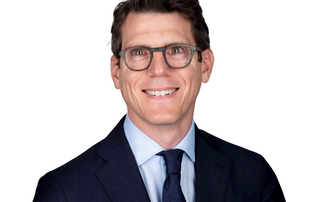Defensive strategies aren’t necessarily all about downside protection. Focusing on income or utilising covered call overlays can also provide upside participation.
Uncertainty is certain
As global trade uncertainty rumbles on, economic growth forecasts are gradually being revised lower. This trend is likely to remain a headline risk despite monetary easing from the Federal Reserve and European Central Bank.
The main component of the US economy is the consumer so any increase in prices that trickle through will present a serious test for consumer demand, as will the fading effects from the beneficial Republican tax cuts implemented last year.
Business investment is also being tested and a recent spike in energy prices alerted markets to political tensions further afield. Any increase in attacks on oil supplies could be the disruptive event that drives us from a slowdown to a full-blown recession. Just one small ‘black swan' could lead us into uncharted waters, especially in Europe, where deposit rates are already negative in many countries. The eurozone powerhouse of Germany is faltering. The German economy shrank by 0.1% in the second quarter, and the Germany ZEW index of economic sentiment and the Ifo business climate barometer for August fell to multi-year lows. The Bundesbank recently warned of a potential further contraction for the German economy in the third quarter, citing the escalating US-China trade war and a possible no-deal Brexit.
An increase in unpredictability
If a global economic slowdown takes firm hold then the ability to withstand unpredictable events diminishes. Volatility spikes could be more likely and the demand for resilient business models will be even more sought after, even if they are expensive. Profitability as a factor in equity markets has performed relatively well over the past few years as value strategies continue to disappoint. Market momentum has instead been with low volatility and quality over the past year, but a reversal was seen during September as interest rate expectations were lowered.
The speed at which this trend continues is rather intriguing, but will such loosening offset the global trade woes?
Defensive strategies could be rewarding
History suggests that full-blown trade wars can ignite more significant conflicts, so defensive strategies such as BMO's Income Leaders suite, that aim to track regional versions of MSCI's Select Quality indices, could be relatively rewarding if such tensions escalate.
Despite political tensions across the globe, volatility within equity markets has been relatively tame. The VIX index has hovered either side of 15 this year and only touched 25 in the first few days of 2019, which was after the last meaningful spike of above 30 around Christmas last year. This instance of extreme volatility was a frantic affair as investors seemed spooked by the speed of interest rate rises and faltering economic growth. We'd be surprised if volatility remained subdued, just one bad-tempered tweet from Trump can frighten markets even though the US President is likely to have a swift change of heart.
Defensive strategies such as BMO's Enhanced Income suite offer covered call strategies that aim to protect during down markets via call option premiums but provide upside participation in rising markets due to their partial equity market coverage, and such strategies could fulfil investors' desire to find the sweet spot between income generation and capital appreciation.
For more information on BMO Global Asset Management's range of ETFs, visit our website.
About the author
Terry Wood joined BMO Global Asset Management in August 2007 as a Quantitative Portfolio Manager covering both passive and active funds. Previously Terry spent nine years at Deutsche Asset Management as a Quantitative Analyst for the Global Equity team.
Terry holds BA (Hons) in Accounting & Finance from the University of Kent and is a CFA Charterholder.
Capital is at risk and investors may not get back the original amount invested.
Shares purchased on the secondary market cannot usually be sold directly back to the Fund. Secondary market investors must buy and sell ETF Shares with the assistance of an intermediary (e.g. a stockbroker) and may incur fees for doing so. In addition, investors may pay more than the current Net Asset Value per Share when buying ETF Shares and may receive less than the current Net Asset Value per Share when selling them.
©2019 BMO Global Asset Management. Financial promotions are issued for marketing and information purposes in the United Kingdom by BMO Asset Management Limited, which is authorised and regulated by the Financial Conduct Authority.











